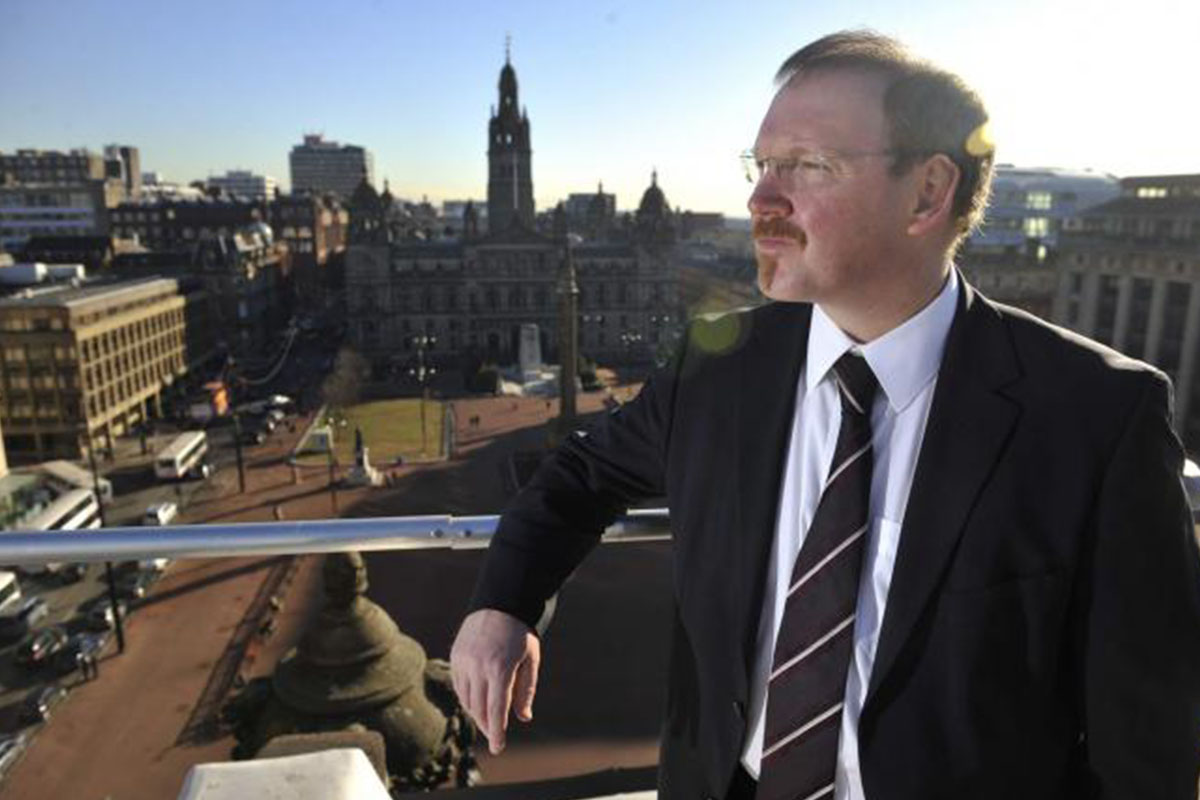
20 Apr 2022
By Stuart Patrick, Chief Executive of Glasgow Chamber of Commerce
I wonder how much thought the party local election manifesto writers have given to the emerging economic conditions when deciding on whether new local taxes such as those on tourist visits or workplace parking should be supported. Last week, the Scottish Chambers of Commerce issued their Quarterly Economic Indicator report for the first quarter of 2022 and the results were not entirely encouraging.
Mairi Spowage, director of the Fraser of Allander Institute which compiled the study, acknowledged that we are all desperate for optimism after two years of pandemic disruption but concludes that ‘global uncertainties and the cost of living crisis have doused that enthusiasm with a bucket of cold water’.
That is not to say that there is no good news in the report. Business confidence overall is still strong in manufacturing and in financial and business services, but the picture is more gloomy in tourism and retail as inflation begins to affect consumer confidence.
All sectors of the Scottish economy are reporting very high levels of concern at increasing inflation. The figures for profits, cash balances and investment are all negative in construction, retail and tourism.
Stephen Leckie, the president of Scottish Chambers of Commerce, specifically highlighted the workplace parking levy, the transient visitor levy (tourist tax) and the deposit return scheme as examples of unwelcome proposals at a time when some business costs are rising at a phenomenal pace. He called for the Scottish and UK Government to think again about the consequences of applying new taxes on business.
The same challenge was made to the Chancellor by the British Chambers of Commerce before his recent spring statement. The BCC opposed the increase in National Insurance Contributions that has now been introduced.
The Scottish Government’s recent report from the national City Centre Taskforce includes a priority for finding more revenue-raising opportunities for local authorities. But, unlike every other priority in the document, there are no specific proposals deemed worthy of further investigation. That appears to have been left to the manifesto writers.
There is no doubt that local councils have been faced with long term funding cuts. Dr William Moyes, recently appointed chair of the Accounts Commission for Scotland, noted in a March blog that when Covid-19 funding is excluded, Scottish Government funding to councils had fallen in real terms by 4.2% between 2013/14 and 2020/21 while the overall Scottish Government budget had a real terms increase. In addition there are the ‘complex and urgent challenges’ posed to councils by the Covid-19 crisis.
So it is unsurprising that local election manifestos are exploring ways to find additional revenue to deliver the fresh services that parties are promising voters in May. Equally there are local services which Chamber members would like to see improved such as the speed and predictability of the planning process. In Glasgow, investment in the maintenance and repair of the city centre to help attract new investment would be another.
But adding new local taxes is not a welcome response in the current economic context. Perhaps over time there does need to be an increase in local government revenue raising capacity but the corollary should be an equal reduction in national government tax revenues.
So, for example, if there really is enthusiasm for local tourism taxes then VAT on accommodation should be coming down in tandem. The tourism tax is often justified by comparing with practice in Europe where local tourism taxes are very common. But VAT on accommodation in Europe is on average half of that charged in the UK. Bringing down VAT on accommodation in the UK would not just keep prices down but would also help to devolve revenue raising to local communities.
Obviously a move of that nature would need co-ordinated thinking between local and both national governments and maybe that is asking rather a lot. Nevertheless it seems perfectly fair for businesses to ask government to start that thinking.
This article was first published in The Herald on Wednesday 20 April 2022